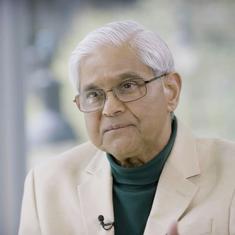Though India’s invitation to Pakistan to attend the Shanghai Cooperation Organisation events in Goa later this year has not been extended in the bilateral context, the meeting of the multilateral bloc does present an opportunity for both sides to engage on the side lines. Invitations were sent to Foreign Minister Bilawal Bhutto-Zardari and Chief Justice of Pakistan Umar Ata Bandial to attend the foreign ministers’ and chief justices’ meetings, respectively, in May. Asked whether Pakistan will attend the moot or not, the foreign office spokesperson said on January 26 that “a decision…will be taken after deliberation”. Bilateral relations are in deep freeze, and as Minister of State for Foreign Affairs Hina Rabbani Khar told the Senate, no backchannel diplomacy is currently underway. The meeting in Goa – should the foreign minister choose to attend – could change that and help restart dialogue, even if it is simply talks about talks at this juncture.
However, overcoming the wide gulf of mutual mistrust will be a major challenge. Since 2019, bilateral ties have been decidedly testy, taking a nosedive after India’s controversial change of held Kashmir’s constitutional status. It was also earlier in that year that both sides traded fire after the Pulwama episode and, if former US Secretary of State Mike Pompeo’s account is accurate, came close to a nuclear exchange. More recently, there has been a toxic exchange of invective, with Bhutto-Zardari calling the Indian prime minister the “butcher of Gujarat” in response to his Indian counterpart’s harsh criticism of Pakistan. As mentioned, this is not a bilateral event, but a multilateral meeting of the Eurasian bloc, so no bilateral breakthroughs should be expected. Moreover, both sides will be careful not to take any bold decisions; in Pakistan a new government will likely be in the saddle later this year, while India goes to the polls in 2024. Hence, major announcements regarding the peace process are unlikely. But at least a roadmap for the revival of talks could be put in place if senior diplomats meet on the side lines. The last time a Pakistani foreign minister was on Indian soil was over a decade ago. Pakistan, then, should consider sending a high-level delegation while India should respond positively to any such gesture. The opportunity must not be squandered by Pakistan and India, and the Shanghai Cooperation Organisation meet can be used to kick-start the moribund peace process.
This article first appeared in Dawn.










